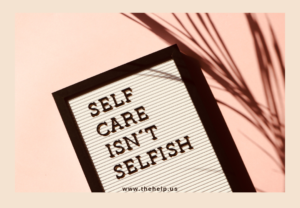
Mental health is an important aspect of overall health that we often overlook in our daily lives. Taking care of our mental health is just as important as taking care of our physical health. In today’s fast-paced world, it’s more important than ever to prioritize our mental health. Here are five tips that can help you take care of your mental health:
1. Practice Self-Care
Self-care is an essential component of maintaining good mental health. It involves taking time for yourself to relax and unwind, doing things you enjoy, and taking care of your physical and emotional needs. This can involve activities like taking a hot bath, reading a book, meditating, or spending time in nature. The key is to find activities that help you relax and recharge.
2. Exercise Regularly
Exercise is not only good for physical health but also for mental health. Regular exercise can help reduce stress and anxiety, improve mood, and increase overall well-being. It doesn’t have to be an intense workout at the gym; even a simple walk around the block can help. Find an exercise routine that works for you and stick to it.
3. Connect with Others
Humans are social creatures, and social connections are crucial for mental health. Spending time with friends and family can help reduce stress, improve mood, and provide a sense of belonging. If you’re feeling isolated, try joining a club or organization that aligns with your interests. You can also reach out to a mental health professional or a support group if you’re struggling with mental health issues.
4. Get Enough Sleep
Sleep is vital for good mental health. Lack of sleep can lead to fatigue, irritability, and poor concentration, among other things. Try to get at least seven to eight hours of sleep per night. Establish a bedtime routine, avoid caffeine and screens before bed, and create a comfortable sleep environment.
5. Practice Mindfulness
Mindfulness involves being present in the moment, without judgment. It’s a way to focus your attention and calm your mind. There are many ways to practice mindfulness, including meditation, deep breathing exercises, and yoga. Mindfulness can help reduce stress and anxiety, improve mood, and increase overall well-being.
Taking care of our mental health is crucial for overall well-being. It’s important to practice self-care, exercise regularly, connect with others, get enough sleep, and practice mindfulness. By incorporating these tips into your daily routine, you can help improve your mental health and lead a happier, healthier life. Remember to be kind to yourself and seek help if you need it. Mental health is just as important as physical health, and it’s essential to prioritize it in our lives.
What are your essential mental health care tips? Share them with us in the comments. Remember to work smart and be a blessing to someone today. Stay safe and healthy!
Written by Jaie O. TheHelp



